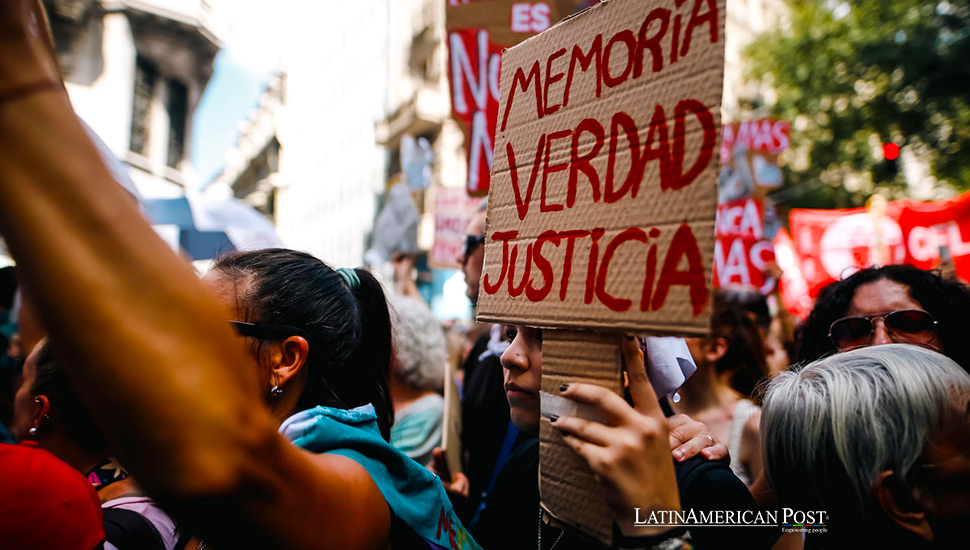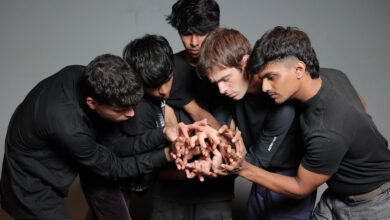Argentina’s Contests History Revisiting Dictatorship Narratives

As Argentina commemorates the dark anniversary of its 1976 military coup, President Javier Milei’s controversial stance reignites debates, challenging established narratives of the dictatorship era and stirring tensions in a nation still grappling with its past.
Shifting the Narrative: Milei’s Controversial Video
President Javier Milei, known for his far-right economic views, posted a video that pivoted the national conversation on a historical day, sending shockwaves through Argentina. While Argentina remembered the onset of its most oppressive dictatorship period in 1976, Milei shifted focus to the pre-coup violence perpetrated by leftist guerrillas, sparking a heated debate on the country’s collective memory.
This controversial stance occurred as Buenos Aires streets swelled with protesters marking the 48th anniversary of the military coup, reminding the nation of the dictatorship’s grim toll: up to 30,000 people killed or disappeared. Milei’s narrative, however, spotlighted “the other dead,” those killed by guerrilla groups before the coup, challenging the dominant historical perspective and stirring political and social unrest.
Vice President Victoria Villarruel, known for her contentious views and advocacy for junta leaders, supports this narrative shift. Her stance and Milei’s actions resonate with a broader Latin American trend where historical narratives are being reconsidered, often clashing with established democratic transitions post-dictatorship.
The narrative shift in Argentina mirrors regional patterns where countries like Brazil and Chile face their reckonings with past military dictatorships. While Argentina has been notable for its judicial pursuits against junta crimes, the current government’s revisionist tendencies could significantly change how these historical events are interpreted and commemorated.
Threats to Human Rights Achievements
Human rights groups and activists fear that this reevaluation threatens the foundational “Nunca Mas” (Never Again) principle that has guided Argentina’s post-dictatorial era. They see Milei’s government as part of a global wave of right-wing movements questioning established historical truths and undermining human rights achievements.
The Kirchner administration made substantial strides in addressing the dictatorship’s atrocities, including revoking amnesty laws and establishing memory sites. With Milei questioning the scale of the junta’s crimes and proposing significant changes to memory institutions, there’s a palpable tension between past and present understandings of Argentina’s history.
The debate extends beyond Argentina, reflecting Latin America’s ongoing struggle with its dictatorial pasts. Nations like Brazil, under leaders like Jair Bolsonaro, have also wrestled with how to reconcile with histories of military rule, often with polarizing outcomes.
In Argentina, the public’s response to Milei’s narrative challenges shows a society deeply engaged with its history, unwilling to let new political narratives overwrite established truths without scrutiny. The participation of diverse age groups in the protests signifies a collective determination to preserve the memory of the dictatorship’s victims and resist attempts to diminish their suffering.
Milei’s administration, with its radical changes and questioning of historical consensus, has not only sparked domestic outcry but also highlighted the fragile nature of historical memory in the face of political change. The pushback from civil society, symbolized by longstanding movements like Las Madres de Plaza de Mayo, underscores a resilient commitment to truth and justice.
These developments are being watched closely internationally, as they have implications for how democratic transitions and historical reckonings are managed in the region. Argentina’s journey from military dictatorship to a democracy that actively confronts its past has been a beacon for other Latin American nations grappling with similar legacies.
Navigating Tumultuous Waters
The current political climate in Argentina, marked by Milei’s controversial statements and policy shifts, challenges this narrative. It poses critical questions about the role of government in shaping historical memory and the power dynamics involved in reinterpreting the past.
As Argentina continues to navigate these tumultuous waters, the outcome will likely resonate across Latin America, where many countries are still coming to terms with their conflict and authoritarian rule histories. The debate over historical memory in Argentina is not just about the past; it’s about how societies remember, reconcile, and learn from history to inform their democratic futures.
Also read: The Gauchos of Argentina: Preserving the Cowboy Lifestyle in the Modern Age
The ongoing contention over Argentina’s memory of its dictatorship era, spurred by President Milei’s provocative statements, is more than a national issue; it reflects broader regional and global trends in reevaluating historical narratives. As Argentina confronts this challenging phase, the repercussions will be felt within its borders and throughout Latin America, where the struggle to balance historical truths with contemporary political narratives continues to unfold.





